Introduction
Pregnancy brings with it a sea of questions, including whether or not you can enjoy your beloved cup of matcha green tea. Factually, matcha contains antioxidants and nutrients that are beneficial for both pregnant woman and baby.
This blog will dive into the pros and cons, discussing the safe consumption levels of matcha during pregnancy alongside expert opinions. Pregnant people be aware, you can consume a cup of Matcha green tea. but consume in moderation.. Are you ready to learn about this superfood in relation to pregnancy? Let’s go!
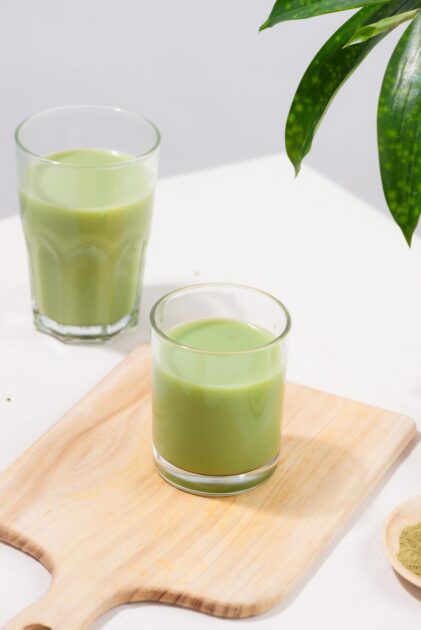
Key Takeaways
- Cups of Green Matcha tea can be consumed in moderation during pregnancy and offers various health benefits due to its antioxidants and nutrients.
- It is recommended to limit matcha green tea intake to one or two cups per day to keep caffeine consumption within safe levels.
- Pregnant women should consume less than 200 mg of caffeine from matcha green tea daily, as excessive caffeine intake may lead to complications.
- Decaffeinated matcha green tea is an alternative option to regular green tea, for pregnant women who want to avoid caffeine but still enjoy the benefits of matcha.
Is It Safe to Drink Matcha Green Tea While Pregnant?
Drinking matcha green tea during pregnancy is a topic of concern for many expecting mothers, but with moderation, it can be safe and even beneficial.
Potential Benefits and risks of drinking matcha green tea during pregnancy
With its rich antioxidants and nutrients, matcha green tea presents numerous health benefits for everyone, including pregnant women. It is a natural blood thinner that helps relax arterial walls and lowers blood pressure.
Additionally, its anti-inflammatory properties aid in maintaining the body’s overall wellbeing during pregnancy.
However, it’s important to note that matcha also contains caffeine – albeit in moderate amounts. Therefore, consuming beyond one or two cups of this vibrant green tea daily may risk exceeding the safe caffeine limit for expecting mothers.
Too much caffeine can create potential issues such as heartbeat irregularities or sleep disturbances which could negatively impact both mom and baby. Hence, while enjoying matcha green tea during pregnancy promises many advantages; temperance plays a crucial role to fully reap these benefits safely.
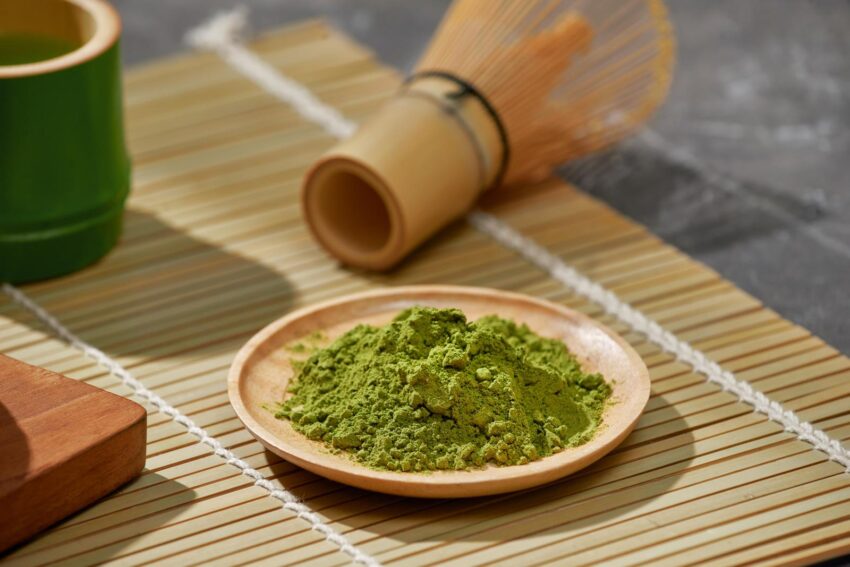
Caffeine content in matcha green tea
Matcha green tea contains caffeine, although the amount of caffeine is generally lower compared to regular brewed coffee. This is because matcha is made by grinding whole tea leaves into a fine powder and consuming it directly, whereas traditional green tea involves steeping the leaves in hot water.
While matcha can provide a gentle energy boost, it’s important to be mindful of its caffeine content during pregnancy.
Moderation is key when it comes to consuming matcha while pregnant. It’s recommended to stick to one or two cups of matcha green tea per day, as excessive caffeine intake can potentially lead to negative effects on both the mother and baby.
Side effects of caffeine overload can increase the risk of preterm birth, low birth weight, and other complications. Please watch your daily caffeine intake.
Remember that everyone metabolizes caffeine differently, so what works for one person may not work for another. If you have concerns about your individual circumstances or are unsure about how much matcha you should consume during pregnancy, it’s always best to consult with your healthcare provider for personalized advice on possible adverse effects.
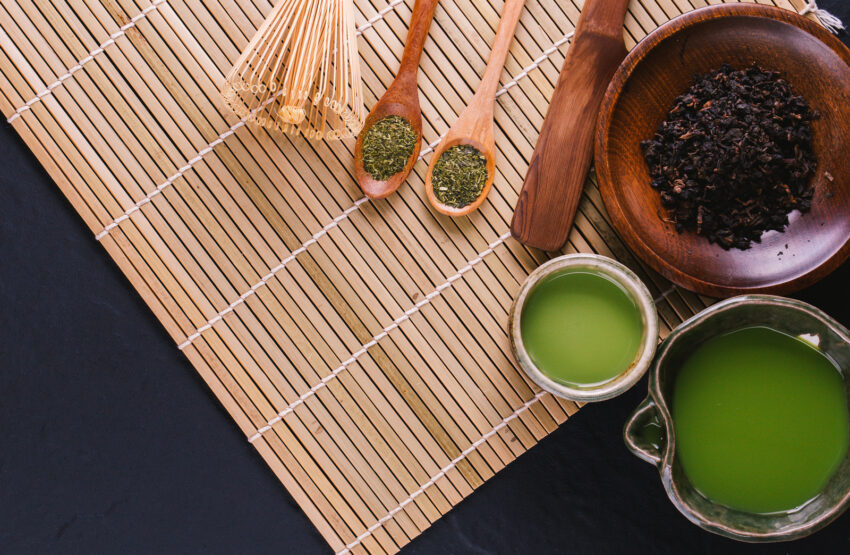
The Importance of Moderation
Moderation is key when it comes to drinking matcha green tea during pregnancy, as it is recommended to stick to one or two cups per day due to its moderate caffeine content.
Recommended intake of matcha green tea during pregnancy
To ensure the safety of both you and your baby, here is the recommended intake of matcha green tea during pregnancy:
- Stick to one or two cups per day: It is important to moderate your consumption of high-quality matcha green tea during pregnancy. Limit yourself to one or two cups per day to keep caffeine intake in check.
- Be mindful of your caffeine intake: Matcha green tea contains caffeine, although in smaller amounts compared to traditional brewed coffee. The recommended limit for pregnant women is to consume less than 200 mg of caffeine per day.
- Consider opting for decaffeinated matcha: If you are concerned about the caffeine content, you can choose decaffeinated matcha green tea instead. This way, you can still enjoy the flavors and benefits without worrying about excessive caffeine.
- Consult with your healthcare provider: Every pregnancy is unique, and it’s always a good idea to consult with your healthcare provider before making any changes to your diet or lifestyle. They can provide personalized recommendations based on your specific needs and circumstances.
- Explore alternative herbal teas: If you prefer to avoid matcha green tea altogether during pregnancy, there are other herbal teas that are safe for consumption. Chamomile, peppermint, ginger, and rooibos are popular options that offer soothing benefits without the caffeine.
- Cups of green tea, including matcha, is safe for consumption during pregnancy in moderation.
- It is recommended to stick to one or two cups of matcha tea green per day due to its moderate caffeine content.
- An Expecting mother can consume less than 200 mg of matcha green tea.
- Drinking matcha green tea during pregnancy is generally safe, but excessive consumption can cause problems and negatively affect the baby.
- There are no specific recommendations regarding matcha and folic acid during pregnancy.
Consulting with a healthcare provider
It is always important to consult with your healthcare provider before making any dietary changes during pregnancy, including the consumption of matcha green tea. They will be able to provide personalized advice based on your individual health needs and medical history.
Your doctor can help determine if matcha green tea is safe for you and recommend an appropriate intake amount. Remember, every pregnancy is unique, so it’s essential to seek professional guidance when it comes to your specific situation.
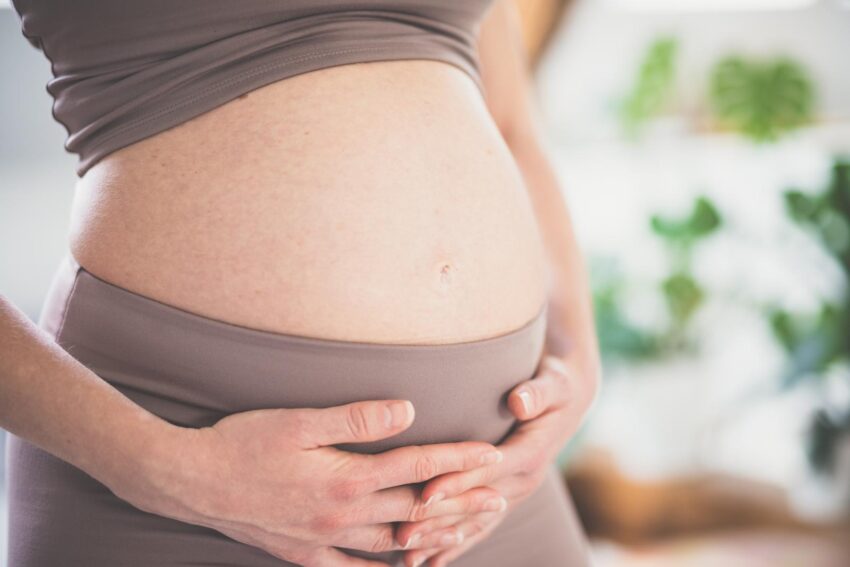
Alternative Options for Pregnancy
When it comes to enjoying matcha during pregnancy, there are alternative options available that can be just as satisfying and safe for both you and your baby.
Decaffeinated matcha green tea
Decaffeinated matcha green tea is a great alternative for pregnant women who want to enjoy the benefits of matcha while avoiding caffeine. By removing most of the caffeine content, decaffeinated matcha allows you to enjoy its antioxidant-rich properties without worrying about unwanted stimulant effects.
This type of matcha is still packed with nutrients and can provide clean energy levels throughout the day. It’s important to note that some decaffeination processes may also remove certain compounds, so it’s crucial to choose a high-quality brand that preserves as much of the beneficial components as possible.
As always, consult with your healthcare provider before making any changes to your diet during pregnancy.
Herbal teas safe for pregnancy
While matcha green tea is generally safe to consume in moderation during pregnancy, some pregnant women may prefer to avoid caffeine altogether. If you’re looking for alternative options, here are a few herbal teas that are considered safe and can be enjoyed during pregnancy:
- Peppermint Tea: Peppermint tea is known for its calming properties and can help alleviate symptoms of morning sickness.
- Ginger Tea: Ginger tea is often recommended for nausea relief and can be soothing for pregnant women experiencing digestive discomfort.
- Rooibos Tea: Rooibos tea is a caffeine-free herbal tea that contains antioxidants and has a naturally sweet taste. It’s a great option for those looking for an alternative to traditional caffeinated teas.
- Chamomile Tea: Chamomile tea is known for its calming effects and can help with relaxation and better sleep during pregnancy.
- Raspberry Leaf Tea: Raspberry leaf tea is believed to strengthen the uterine muscles and may help with labor preparation. However, it’s important to consult with your healthcare provider before consuming this tea during pregnancy.
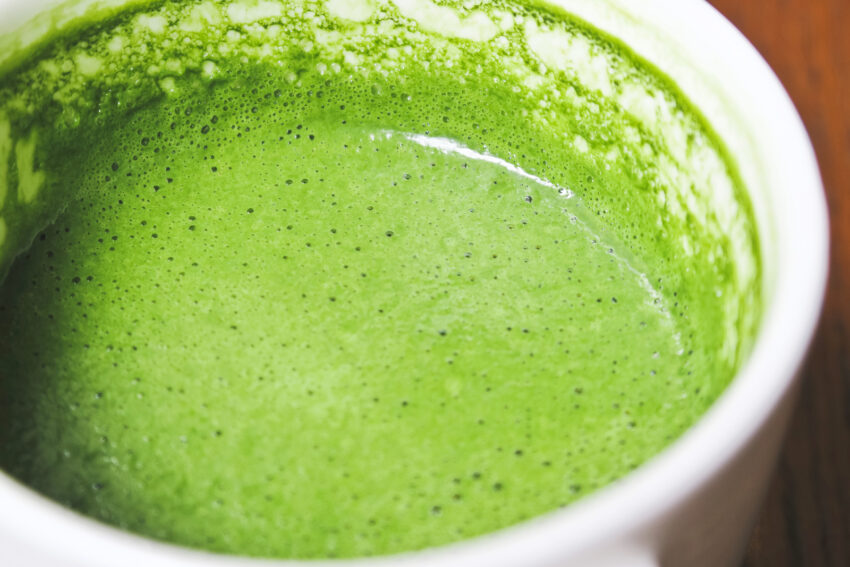
FAQs
1. Is it safe to drink matcha green tea while pregnant?
While matcha green tea contains caffeine, it is generally considered safe to consume in moderation during pregnancy. However, it is always recommended to consult with your healthcare provider before making any dietary changes or consuming new beverages.
2. How much matcha green tea can I drink while pregnant?
It is important to limit your intake of caffeine during pregnancy, including from sources like matcha green tea. The American College of Obstetricians and Gynecologists recommends that pregnant women consume no more than 200 mg of caffeine per day, which is roughly equivalent to one cup of brewed coffee.
3. Are there any potential risks associated with drinking matcha green tea during pregnancy?
While moderate consumption of matcha green tea is generally considered safe for most pregnant women, excessive intake may have some risks. High levels of caffeine can potentially increase the risk of miscarriage or preterm birth. It’s best to follow the guidelines provided by your healthcare provider.
4. Can expectant mothers switch to decaffeinated matcha green tea during pregnancy?
Decaffeinated versions of matcha green tea are available and can be a safer option if you’re concerned about caffeine intake during pregnancy. However, it’s important to note that even decaffeinated teas may still contain trace amounts of caffeine, so it’s advisable not to exceed the recommended daily limit advised by your healthcare provider.
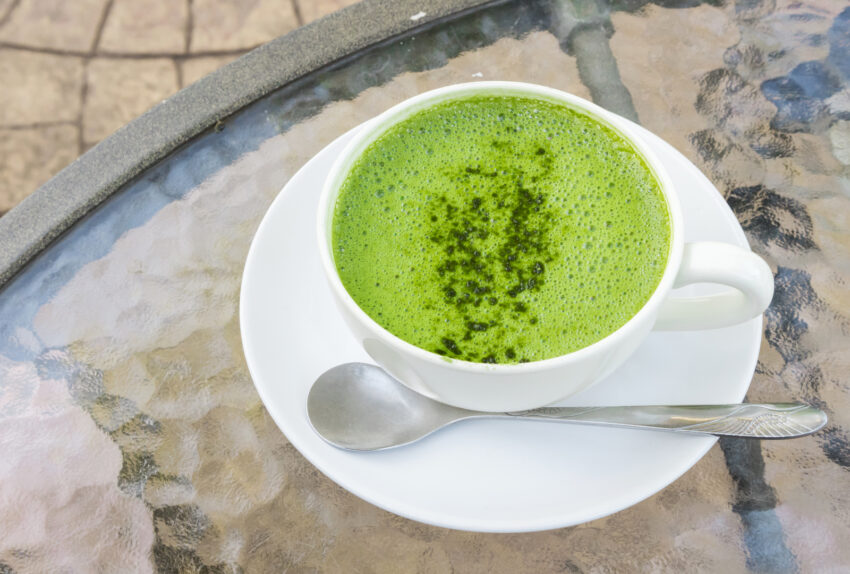
Conclusion
In conclusion, drinking matcha green tea in moderation is generally considered safe during pregnancy. It provides a range of health benefits and can be enjoyed as part of a balanced diet. However, it’s important to consult with your healthcare provider and stick to recommended intake guidelines to ensure the well-being of both you and your baby.
Remember that maintaining moderation is key when enjoying matcha or any other dietary choices during pregnancy.
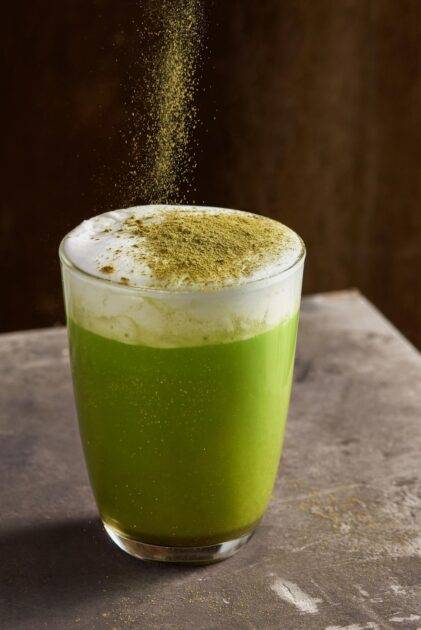
Pingback: Healthy Bay Leaf Tea: The Ultimate Guide to It’s Benefits -
Pingback: The Best Tea For Sinus Issues: Use This Remedy Right Now! -